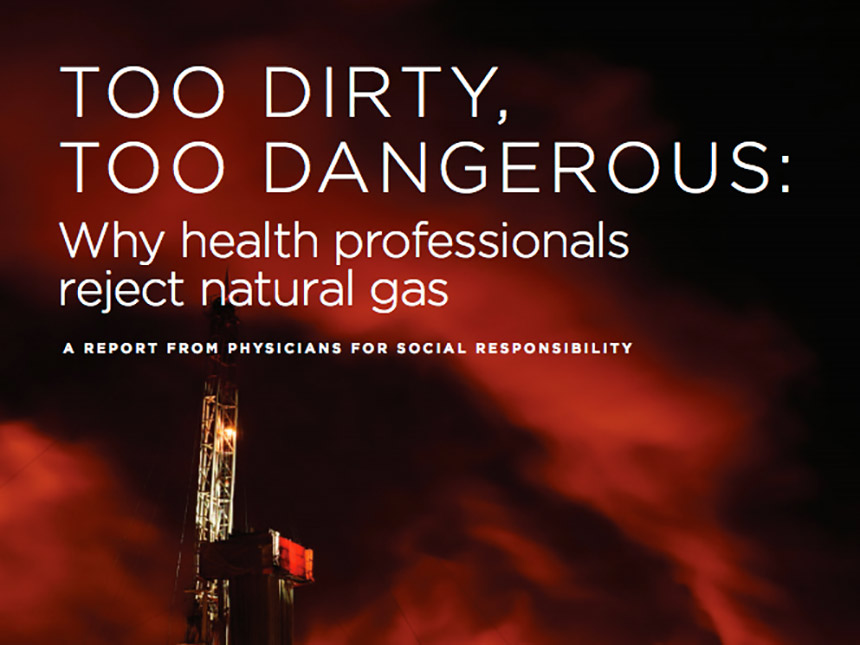Report: Health Hazards of Natural Gas
On March 1, 2017, Physicians for Social Responsibility released a new report on the health hazards of methane. The report, Too Dirty, Too Dangerous: Why Health Professionals Reject Natural Gas, is based on summaries of recent medical and scientific studies and clearly conveys the health threats that accompany use of methane as a fuel. Here are some of the key findings:
- Proximity to hydraulic fracturing (“fracking”) operations is associated with congenital heart defects, increased risk of high-risk pregnancy and premature birth, worsening asthma, and increased rates of hospitalization for cardiac, neurological and cancer-related problems.
- Methane accelerates climate change. It is more potent a greenhouse gas than carbon dioxide over its first hundred years in the atmosphere—fully 86 times more potent over its first 20 years.
- Methane has been found to leak from fracking wells, equipment, and pipelines at rates that make it worse for the environment than coal. Those leakage rates, if sustained, move us closer to climate catastrophe.
According to the U.S. Energy Information Administration, Texas leads the nation in natural gas production (for the year 2015). With multiple shale deposits, wells can be found in many parts of the state.
“Hydraulic fracturing of natural gas poses health risks to field workers as well as to people who live, work, and play in close proximity to the gas wells,” said Marian Morris, MPH, RN, board member of Texas PSR. “In Texas, we have active well sites in both urban and rural areas, and I am concerned for neighboring children, pregnant women, and the elderly—because these vulnerable populations are most at risk for negative health impacts.”
For more information, download the report.

